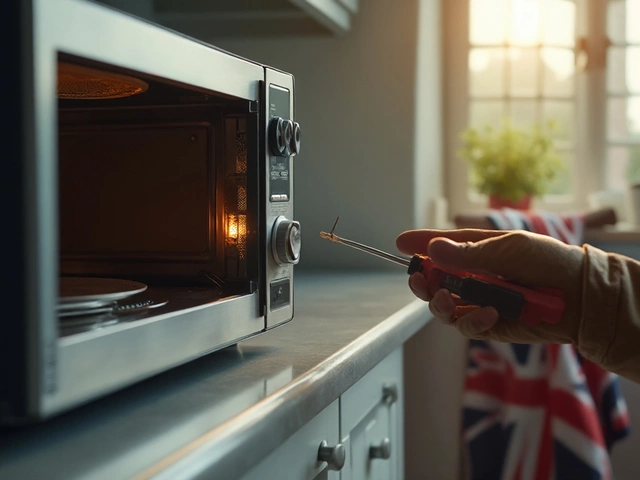If your water heater is acting up, the first thought is often “replace it.” But a lot of the wear and tear can be avoided with a few easy habits. Below are the most practical steps you can start today to keep your heater running smoothly for years.
Mineral buildup is the #1 cause of reduced efficiency. Every 6‑12 months, turn off the power or gas, attach a hose to the drain valve, and let the tank empty. Then fill it back up and turn the unit on. This simple flush clears sediment that would otherwise insulate the heating element and force the heater to work harder.
Most people set their thermostat to 140°F (60°C) because they think hotter water means better performance. In reality, 120°F (49°C) is hot enough for showers and cuts energy use by up to 6 %. Lowering the temperature also slows down the corrosion of the internal metal parts, extending the heater’s life.
While you’re at it, check the pressure‑relief valve once a year. Lift the lever – you should see water flow out and then stop when you release it. If it sticks, replace the valve; a faulty valve can cause leaks and dangerous pressure buildup.
The anode rod acts like a sacrificial metal, attracting corrosive elements so the tank itself stays intact. Inspect it every 2‑3 years. If it’s heavily corroded (more than 6 inches of the ½‑inch core exposed), swap it out. Replacing the rod is cheap – often under £30 – and can add a decade to your heater’s lifespan.
Wrap the tank with a foam blanket designed for water heaters. This keeps heat in, so the unit doesn’t fire up as often. Also, add an insulating jacket around the hot‑water pipes that run from the heater to the taps. The right insulation can cut your heating bill by 10‑15 % and reduces the strain on the heater.
Hard water leaves mineral deposits, while acidic water speeds up corrosion. If you have hard water, consider a water softener. For acidic water, a simple neutralizing filter can protect the tank’s metal surfaces. Both solutions are inexpensive and pay for themselves quickly by reducing wear.
A single heater can only heat a certain amount of water at a time. Trying to run multiple showers and the dishwasher simultaneously forces the unit to run nonstop, which shortens its life. Spread out high‑draw activities or upgrade to a larger tank if you consistently need more hot water.
Finally, schedule a professional inspection every 1‑2 years. A qualified engineer can spot subtle issues – a cracked dip tube, a loose gas valve, or a failing thermostat – before they become costly repairs. Many local services offer a quick check‑up for a modest fee, and it’s often cheaper than a sudden breakdown.
By flushing the tank, setting the right temperature, checking the anode rod, adding insulation, managing water quality, and avoiding overload, you’ll keep your water heater humming for years. Small habits today mean fewer service calls, lower bills, and endless hot showers tomorrow.

Water heaters are essential fixtures in homes, providing warm water for daily needs. Understanding their lifespan can help homeowners plan for replacements and avoid unexpected cold showers. Depending on the type and maintenance, a water heater can typically last between 8 to 12 years. Regular inspections and upkeep can potentially add years to a water heater's lifespan.

Repairing an aging laptop can be a tricky decision. This article explores whether it's still worth investing in a 7-year-old device. We'll consider factors like performance, cost, potential upgrades, and environmental impact. Dive in to learn about the practical and sentimental value of maintaining your trusty laptop.

Learn fast how to spot a blown microwave fuse, test it safely, and replace it yourself. Step‑by‑step instructions, tools needed, and common pitfalls covered.

Microwave ovens are essential appliances due to their convenience in heating food. However, they can encounter several problems over time. The most frequent cause of microwave failure is a faulty door switch. This article discusses common microwave problems, how to identify them, and offers practical guidance on how to handle these issues.

If your extractor fan has suddenly stopped working, it's not just annoying but can lead to bigger problems like excess moisture and lingering odors. This article will delve into common issues with extractor fans and provide practical solutions you can try at home. Learn about potential causes, from power supply problems to sensor malfunctions, along with straightforward fixes. Some tips might even save you from calling in a professional. Get your fan back up and running with ease!

Ever opened your freezer to find squishy ice cream or thawed food when it should be rock solid? This article digs into the real reasons your freezer refuses to stay frozen, from simple mistakes to sneaky mechanical fails. Learn how to spot common culprits, fix minor issues yourself, and know when things are actually serious. Packed with practical tips and straightforward advice, you'll get the cold facts and solutions you need. No jargon, just help you can actually use.